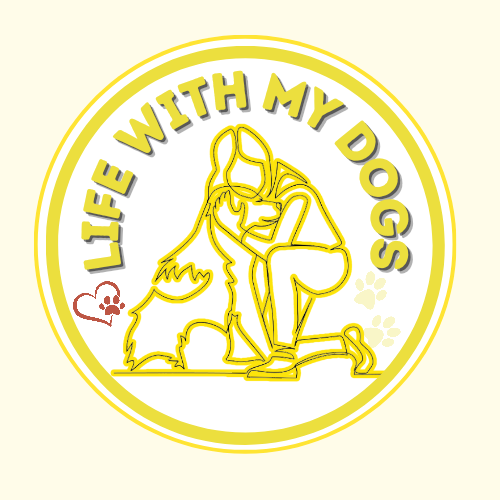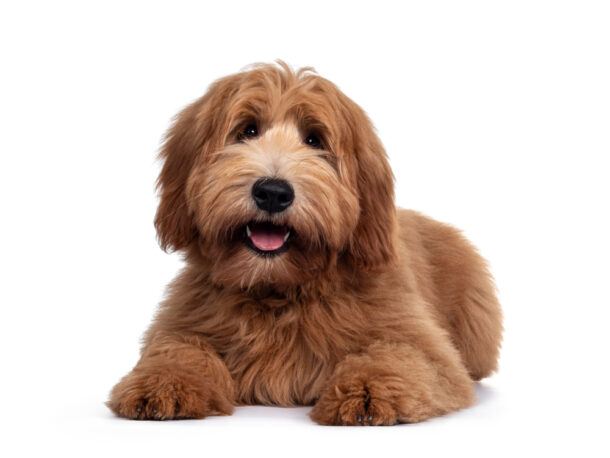LifeWithMyDogs is supported by our audience. When you purchase through one of our links, we may earn a small affiliate commission. As an Amazon Associate I earn from qualifying purchases. Your cost is not affected.
**********
Withholding water from senior dogs at night might seem like a quick fix for accidents, but for any dog lover, it feels downright cruel.
This article explores alternative solutions that prioritize both your senior companion’s comfort and their health.
Withholding Water from Senior Dog at Night: Managing Hydration and Health
Managing the care of a senior dog often involves adjusting routine practices to match their changing needs, including their hydration schedule.
As dogs age, they can face an increased risk of incontinence, especially during the night. Withholding water from a senior dog at night can help prevent accidents, ensuring a peaceful night’s sleep for both the dog and the owner.
However, ensuring proper hydration remains a critical aspect of their overall health.
The decision to restrict water intake before bedtime must be balanced with the senior dog’s overall hydration needs.
It’s broadly recommended that dogs receive one ounce of water per pound of body weight daily; this becomes a delicate equation when adjusting a senior dog’s water schedule.
Careful consideration of the health of the dog, environmental factors, and daily activity levels must inform any changes to water intake to avoid dehydration or other issues related to insufficient hydration, such as kidney stones or urinary tract infections.
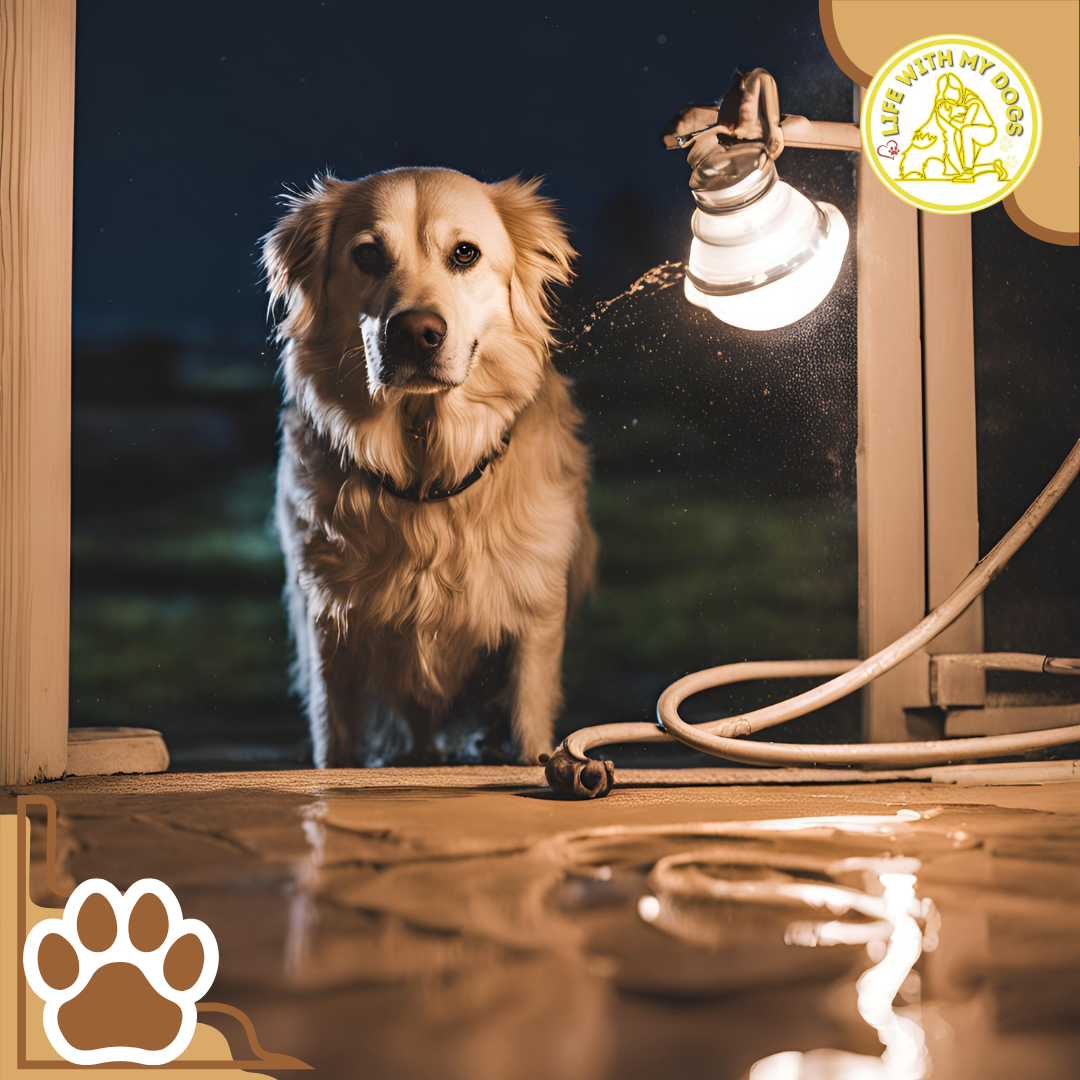
Key Takeaways
- Withholding water can prevent nighttime incontinence in senior dogs.
- Adequate daily hydration is essential for a senior dog’s health.
- Changes to a dog’s water schedule should be done with veterinary guidance.
Understanding Canine Hydration
Proper hydration is crucial for a dog’s cellular functions and overall health. As dogs age, their water requirements may change due to a variety of physical adjustments.
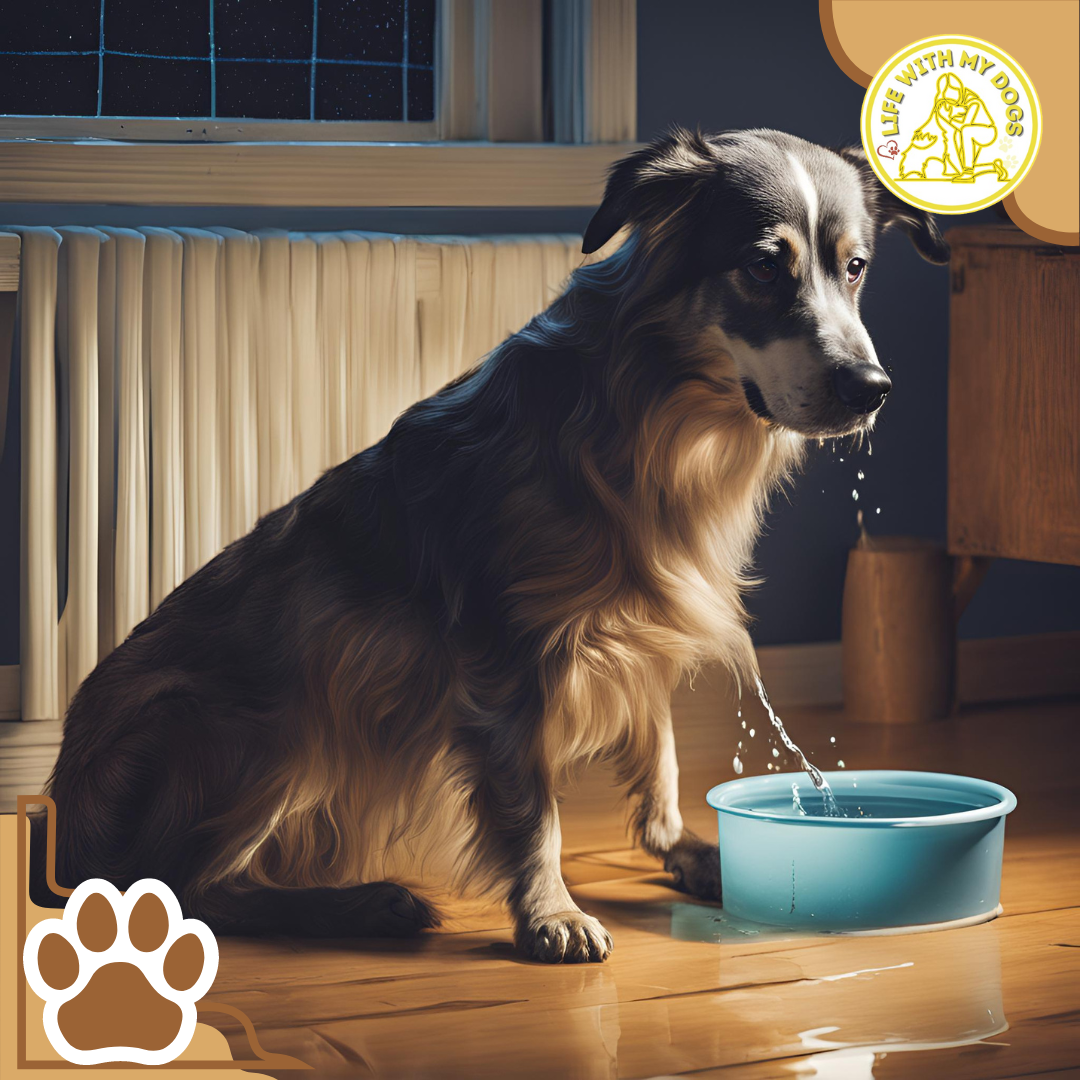
Importance of Hydration
Hydration in dogs is as critical as it is in humans. Water constitutes about 60-70% of an adult dog’s body weight. It’s essential for digestion, circulation, waste filtering, and regulation of body temperature.
Dogs generally require 1 ounce of water per pound of body weight daily. For instance, a 25-pound dog would need 25 ounces of water, equating to around 3 cups every day. Always ensure the dog has access to clean, fresh water.
Age-Related Changes in Water Needs
Senior dogs may experience various physiological changes affecting their hydration needs. These can include a decreased ability to regulate water balance and potential medical conditions that alter water intake, such as kidney disease, diabetes, or Cushing’s disease.
- Reduced kidney function: Affects the dog’s ability to concentrate urine and conserve water.
- Medication side effects: May increase water loss through urination.
- Less efficient temperature regulation: Can lead to increased water requirements in hot weather or after exercise.
Health Considerations for Senior Dogs
When managing the health of senior dogs, particular attention is required for maintaining kidney function and urinary tract health. Both systems are critical for a dog’s overall well-being and can be more prone to issues as the dog ages.
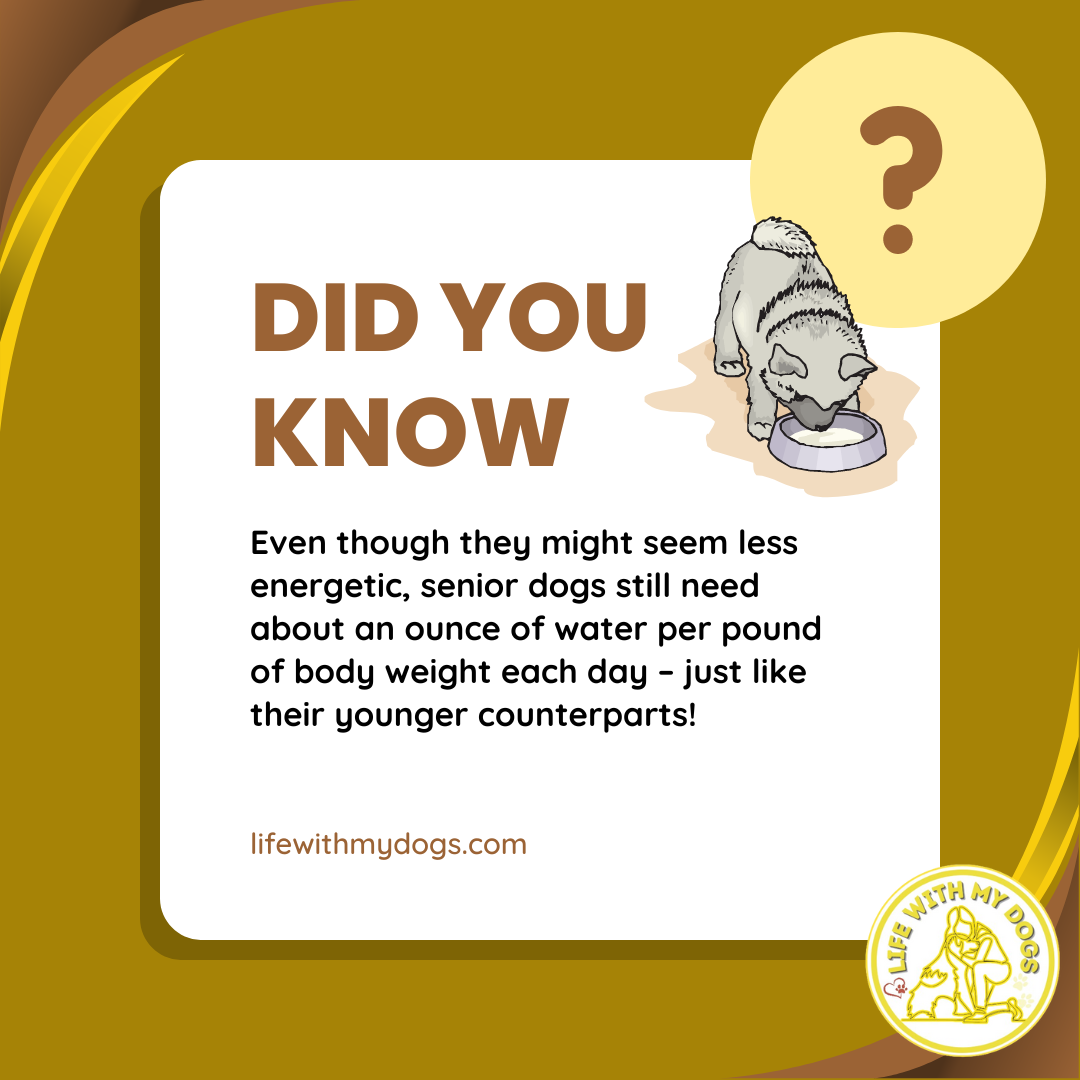
Kidney Function
The kidneys play a crucial role in regulating hydration, blood pressure, electrolyte balance, and waste removal.
Senior dogs often experience a decrease in kidney efficiency, which necessitates careful monitoring of their water intake. It’s important to ensure these dogs receive an adequate amount of water, generally 1 ounce for every pound of body weight.
However, because the kidneys may not function as well in old age, managing the timing of water consumption becomes key, particularly before bedtime.
Urinary Tract Health
Maintaining urinary tract health is an ongoing concern for aging canines. A delicate balance of water intake is important to avoid the risk of dehydration and urinary tract infections, which are not uncommon in senior dogs.
It is advised to limit water intake before bed to reduce the likelihood of accidents, while not compromising the overall hydration necessary for urinary tract and kidney health.
Assessing Your Senior Dog’s Night-Time Needs
Evaluating the night-time water and behavior needs of a senior dog is crucial for their health and comfort. Appropriate monitoring helps maintain the dog’s well-being and quality of life.
Monitoring Water Intake
Owners should ensure the senior dog receives adequate hydration, measured at approximately one ounce of water per pound of the dog’s weight daily.
Advisably, they should observe how much their senior dog drinks throughout the day and gradually limit water intake as evening approaches, to prevent overnight accidents and improve sleep quality.
Careful monitoring is necessary to strike a balance between regular access to water and reducing excessive night-time drinking that might lead to bloating or potential water intoxication.
Observing Night-Time Behavior
Observing a senior dog’s behavior at night can provide insights into their comfort and health status. Owners should look for signs of discomfort such as restlessness or anxiety, which might indicate a need for a pre-bedtime bathroom trip or underlying health issues like canine dementia.
Night-time observations help discern whether withholding water is contributing to a restful night or if it adds to the dog’s stress and discomfort.
Strategies for Withholding Water at Night
When looking to manage a senior dog’s water intake at night, two effective strategies can be implemented: the Gradual Reduction Technique and Scheduled Water Access. These methods aim to balance the dog’s hydration needs with the goal of preventing overnight accidents.
Gradual Reduction Technique
To start with the Gradual Reduction Technique, one can begin by slightly decreasing the total water given in the evening hours, ensuring the dog’s total daily water needs are met.
Senior dogs typically require an ounce of water per pound of body weight each day. It is critical not to reduce water intake abruptly, as that can impact the dog’s health.
Scheduled Water Access
Scheduled Water Access involves defining specific times for water consumption, thereby avoiding free access to water late at night.
It’s advisable to stop water consumption about an hour before bedtime, to minimize nighttime urination without risking dehydration.
One should monitor how the dog adapts to this schedule and adjust accordingly to maintain their comfort and health.
Alternative Hydration Methods
Ensuring proper hydration for senior dogs is crucial, especially if water intake needs to be managed at night. This section explores how dietary choices can contribute to a dog’s fluid needs.
Hydration Through Diet
A senior dog’s diet can be a source of hydration beyond just drinking water. Foods with high moisture content, such as certain fruits and vegetables, can provide additional fluids.
These could include cucumber and watermelon, which are safe for dogs in small, appropriate amounts. It’s important to consult with a veterinarian to ensure that any dietary changes would be suitable for a senior dog’s specific health needs.
Using Wet Food
Incorporating wet food into a senior dog’s diet can significantly increase their water intake.
Wet food typically contains around 78% moisture, which is substantially higher than the average 10% in dry kibble. This transition should be done gradually to prevent any digestive upset, and portion sizes need to be adjusted to meet the dog’s caloric needs without leading to weight gain.
Potential Risks of Withholding Water
Withholding water from a senior dog at night can lead to several health complications. Owners should consider these risks carefully before modifying their pet’s water intake schedule.
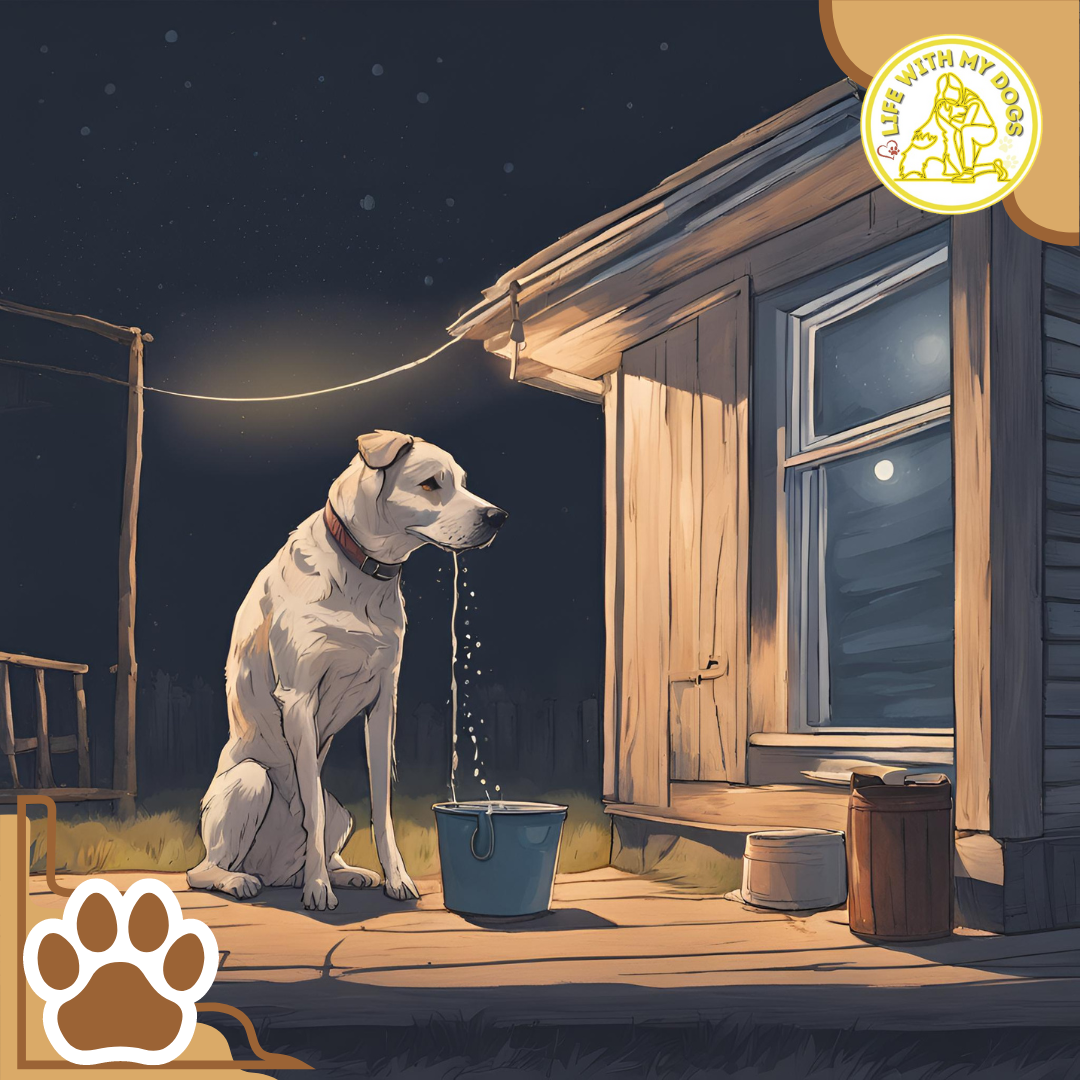
Dehydration Risks
Dehydration is a primary concern when restricting a senior dog’s access to water. As dogs age, they may require more hydration to support kidney function and overall health.
When water is withheld, a senior dog could suffer from dehydration which may compromise their health.
According to Canine Care Central, dogs that do not consume enough water can experience bloating and water intoxication, leading to serious conditions such as lethargy and loss of coordination.
Signs of Insufficient Hydration
Owners should be vigilant for signs of dehydration which include:
- Dry gums
- Lethargy
- Excessive panting
If a senior dog shows any symptoms suggesting a lack of hydration, it’s essential to reconsider nighttime water withholding methods. Information from Dog Growth suggests monitoring a dog’s daily water intake — approximately 1 ounce per pound of body weight — to prevent dehydration.
Consulting with a Veterinarian
When considering withholding water from a senior dog at night, it is crucial to consult with a veterinarian. They provide professional guidance and can tailor a hydration plan suited to the dog’s specific health needs.
Professional Advice
Veterinarians can assess whether restricting water at night is appropriate for a senior dog. They take into account the dog’s medical history, current medications, and overall health status.
For instance, if a senior dog is panting at night and drinking lots of water, it may indicate an underlying medical condition, such as kidney failure or diabetes mellitus, requiring veterinary attention.
Customized Hydration Plan
A veterinarian can develop a Customized Hydration Plan that ensures the dog’s health is not compromised by changes in water intake.
They may provide specific recommendations on:
-
- Daily Water Requirements: Based on the dog’s weight, activity level, and health conditions.
- Evening Water Management: Methods to balance water intake and reduce nighttime accidents without causing dehydration.
Withholding Water from Senior Dogs at Night: A Compassionate Approach
We’ve explored the challenges of nighttime incontinence in senior dogs and why withholding water entirely isn’t the answer. We discussed alternative hydration methods like wet food and water-rich fruits and vegetables, alongside strategies for managing water intake throughout the day to minimize nighttime accidents. Most importantly, we emphasized the importance of consulting your veterinarian to develop a customized plan that prioritizes your senior dog’s health and well-being.
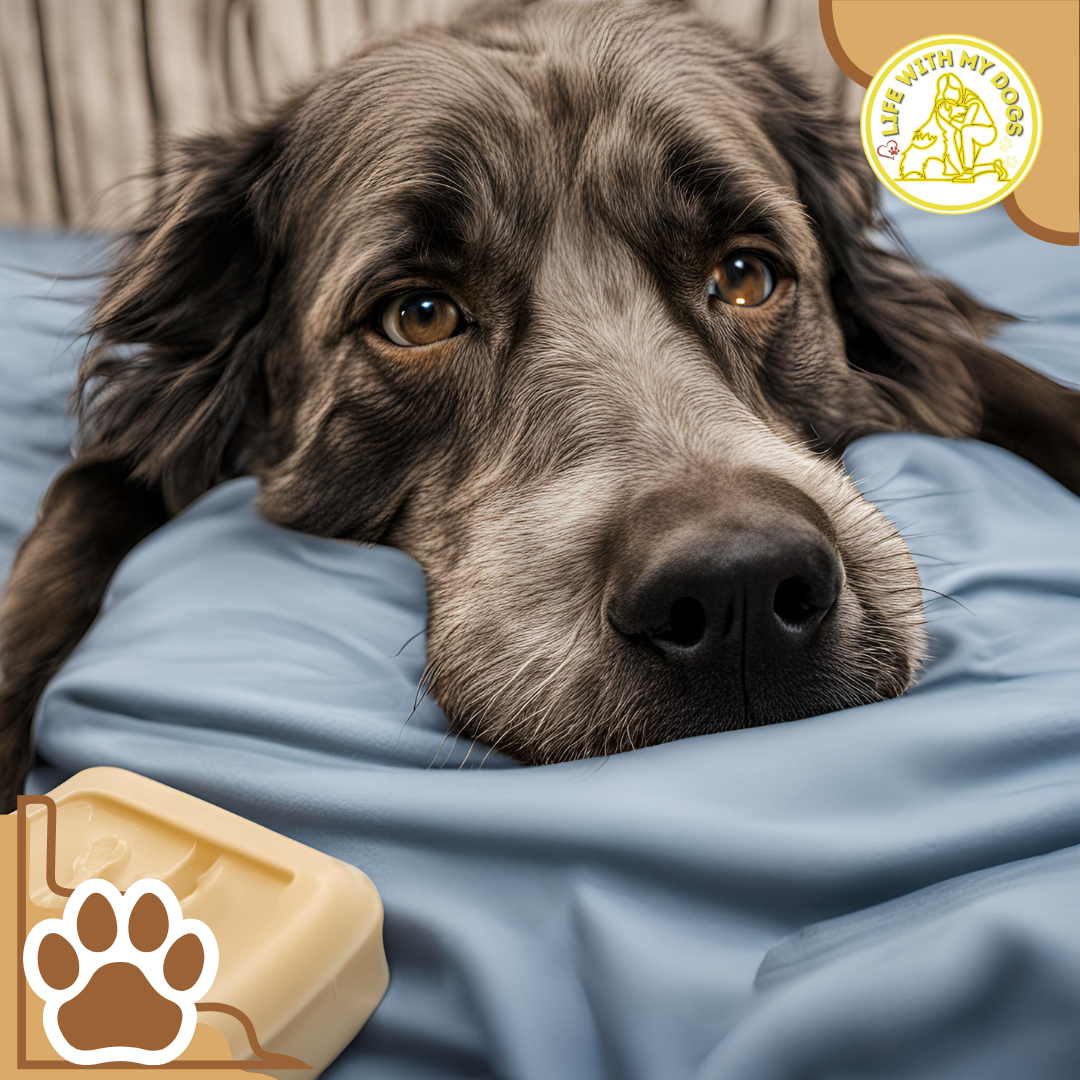
Thank you for reading and for your commitment to providing the best possible care for your furry companion during their golden years.
Frequently Asked Questions
In managing a senior dog’s health, understanding the implications of nighttime water restriction is crucial. This section addresses common concerns pet owners may have.
Is it harmful to restrict a senior dog's access to water overnight?
While restricting water access overnight may prevent accidents, it’s important to ensure your senior dog stays hydrated.
Withholding water for too long can lead to dehydration and other health issues.
How can nighttime water restriction affect an older dog's health?
An older dog’s health can be sensitive to changes in water intake.
Limiting access might increase the risk of urinary tract infections and impact kidney functions.
What are the signs that a senior dog might need access to water during the night?
Signs of needing water include restlessness, excessive panting, or licking lips.
If these signs are observed, it may be necessary to provide water to prevent dehydration.
Are there any health risks associated with an old dog peeing in the house?
Incontinence in older dogs could be a symptom of underlying health issues such as diabetes or kidney disease.
Consult a vet if your dog starts to pee in the house.
How can I manage my older dog's increased need to urinate at night?
To manage your dog’s need to urinate, stop water consumption about one hour before bed.
Also, ensure they have plenty of opportunities to relieve themselves before bedtime, as recommended by Doggrowth.
Should an older dog's water intake be limited to prevent nighttime accidents?
Monitor and possibly limit water intake, but always provide enough to maintain their health.
Amounts vary, so consult a veterinarian to determine the proper water consumption for your dog’s age and weight.
Related Topics to Try
